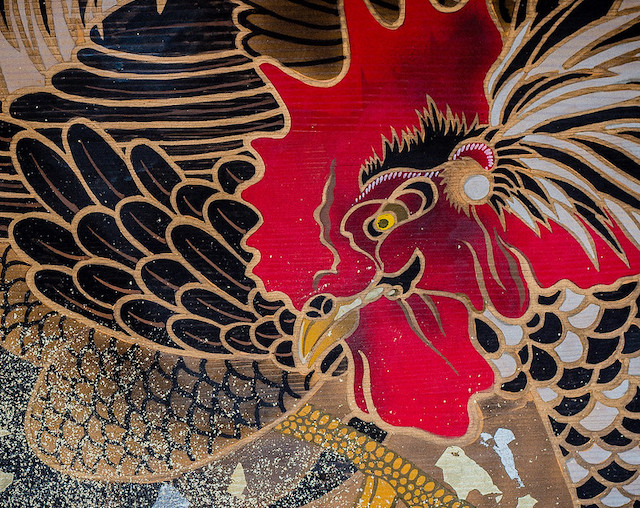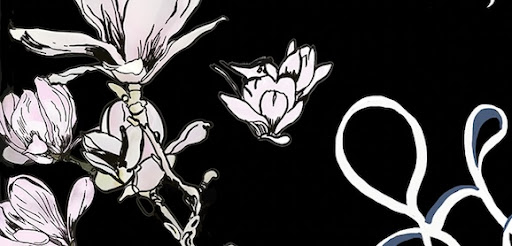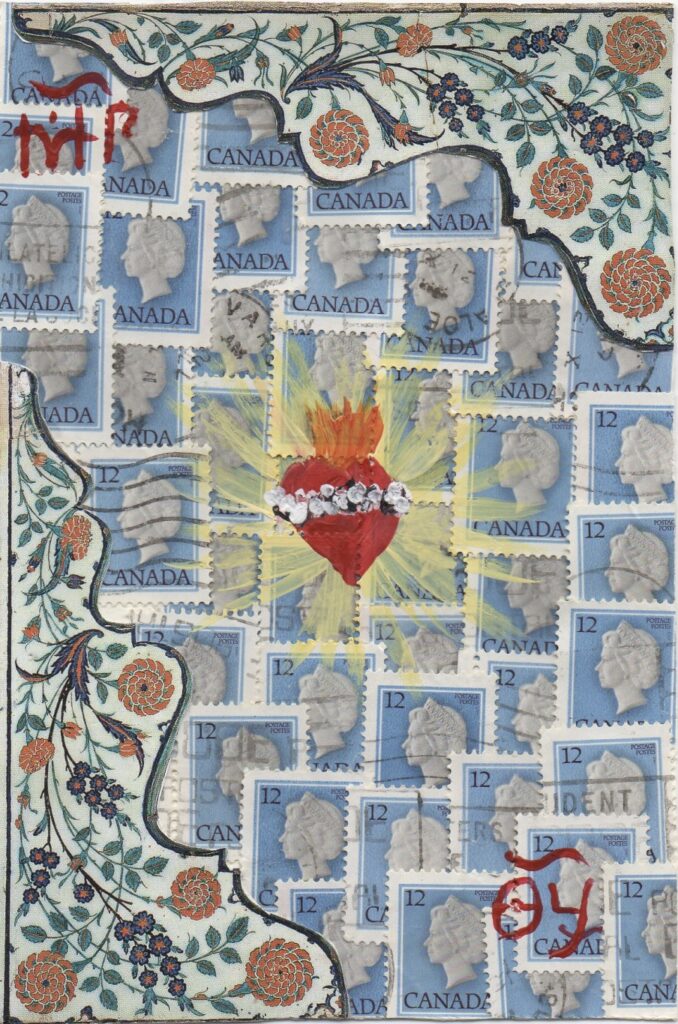She had a dream the night before about catching a pig, which her father used to tell her was a prelude for great fortune.

December 21, 2022
As far as Powerball winners went, she was a wise one.
She resisted the impulse to tell anyone of her tremendous luck.
She assumed a new identity.
She moved to a suburb by the sea.
She bought the nicest house that money could buy, the kind with balconies she’d never use, the kind with windows with rails that lined up with the liquid horizon beyond. She tried learning watercolors, French, and flower arrangement—in that order—and gave up on all three, in the opposite order.
Waves tossed gently. Leaning against a spotless white wall, she could hear them hiss. By the year’s end, she could finally see an ocean view for what it really was: a stripe of blue, not much more.
She started filling out online surveys, the ones with a chance to win twenty-dollar gift cards. She started submitting her worst watercolors to the best galleries. She started buying lottery tickets again, first scratch-offs, then the Powerball again. She didn’t necessarily seek to reproduce her achievement; she just wanted to comprehend the weight of it from time to time.
To her disbelief, she won a second time before spring arrived. She declined; the state she now lived in required her to disclose her identity to accept the prize. Right around then, she started receiving emails from her brothers. They demanded to know where she was. They had obscure investment opportunities they needed her to pay into, and they had old men they wanted her to indulge. They claimed she should treat their proposals every bit as seriously as they did, and the first step was to come home. Lying in bed, she had visions—broad-shouldered men both real and imagined flocked like birds around her house, their fleshy wings tattered and their caws bearing the cadence of her name.
She decided to keep the curtains closed during the day. With time, her beautiful house started to pick up dust. She resisted the temptation to get in touch with old friends, since the few she had knew her family.
Months later, she saw in the news that an aging woman named Irene Noh won the Lotto. As it turned out, Ms. Noh lived on the street across from hers. Freshly printed, the newspaper stayed warm in her lap as she gazed out at her two stripes of blue. Perhaps she could relate, she thought.
She wrote an honest letter. It was the only way. She gave proof that she too was a lottery winner, declaring that she was not, as might’ve been reasonably suspected, approaching her for her newfound fortune. She delivered the letter in the morning. To her surprise, she was invited over for tea that afternoon.
Beautiful tapestries adorned the walls of Ms. Noh’s living room. She wove them herself. Her tea cups were stylishly slender. She molded them herself.
They chatted, first about life by the sea and later about life after the lottery. Ms. Noh, much older than her guest, said she only bought her ticket for fun; she had a dream the night before about catching a pig, which her father used to tell her was a prelude for great fortune. She mentioned she had never been married, and she had no remaining family to hound her for her riches—though some of the neighbors had tried to cozy up recently. The younger woman smiled, then related that not having a family maybe wasn’t so bad. The older woman put a hand on the younger woman’s shoulder as if she understood. From afar, waves sloshed; gulls wailed.
She led the younger woman to her workroom. The older woman was an oil painter. Gorgeous portraits of the female form were wrapped and organized into racks. Mesmerized, the younger woman felt her own body tense up. By the hour’s end, she agreed to disrobe and pose for the older woman.
The portrait would stay incomplete from the waist down. The older woman stopped mid-brushstroke, because the other woman’s youth made her ravenous. As the older woman laid a hand on her bare thigh, the younger woman saw the beauty concealed by a thinly creased face. They went to bed. The younger woman let her name be known, the one she had before she won the Powerball, because that was the one she wanted the older woman to pant. Familiar syllables were uttered again and again, intonated differently each time. Contentment washed over her as though she was lying on sand while the tide rolled in. She found what she had been missing, though she didn’t know how quickly the feeling would recede.
Irene Noh would soon vanish, because as far as winners went, she too was a wise one.
Weeks, months later, the younger woman sometimes thought about her, though she tried not to. She took up swimming at sea, and she stuck with it. Sometimes, she’d backstroke a few yards from shore, all but her face submerged. Counting clouds, she could momentarily feel her body drift away—she focused on the cold roar of water in her ear, the faint lightheadedness as she bobbed on the boundary of sea and sky. Just once, the darkness behind shut eyes formed a ribboned piglet. She chased it down an empty alleyway, her flimsy hands sweeping at nimble hooves but always falling short. As her eyes opened to a familiar expanse of blue, she wondered what it would be like to have someone tell her about all the things she should and shouldn’t chase in her sleep.
This story is part of the Remains notebook, which features art by Chitra Ganesh.



